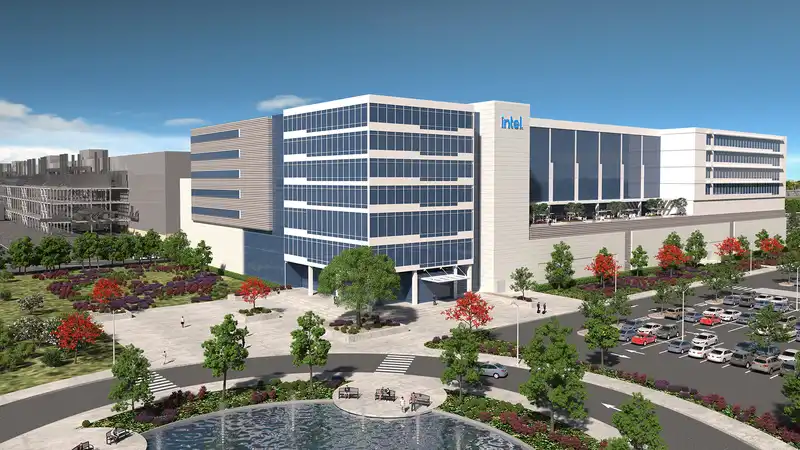In 2022, we reported on Intel's plans to build a new chip manufacturing facility in Magdeburg, Germany. However, the project was not entirely in order, and following a plea for greater subsidies rejected by the country's finance minister, the first ground inspection that raised a large Neolithic burial site was carried out. Now it seems that construction will be delayed again — this time because the ground has too much of the wrong type of soil.
It reports that Intel wanted to start the first phase of soil removal in a few months, according to the daily newspaper Volkstimme, local in the Madeburg region (via Andreas Schilling). However, it turned out that there are more black soils (rich in organic matter) than expected. Schilling comments that 40cm is a typical depth in that area, but 90cm at the Intel site.
Because of its soft and loose nature, engineers cannot build on it — at least not that amount of black soil — because large buildings subside rapidly (and chip fabs are very large). No matter what solution is planned, Intel will not be able to fully start construction until 2025, and the schedule is further delayed.
It was not particularly smooth sailing anyway. As with all major construction projects in the EU, the site underwent an archaeological survey that found a large Neolithic burial site.
Due to its fertile soil and wealth of loess, the Saxony-Anhalt region in Germany has been home to people for thousands of years. The area Intel chose to build the new plant turned out to be "a very complex, long-used burial and ritual landscape," according to Dr. Oliver Dietrich.
Intel also wanted to get a little more cash from the German government to fund the build. However, the request to increase the initial €6.8 billion investment to €10 billion was rejected by Finance Minister Christian Lindner.
Currently, Intel's only major presence in Europe is in Leixlip, Ireland, which consists of two factories: Fab24 and Fab34. The chips have been manufactured in Ireland for many years, and some of the original Pentium processors were manufactured in 1993 at the first foundry, Fab10.
Fab34 manufactures chips on Intel4 process nodes used for Meteor Lake Cpus, forming the backbone of Intel's plans to have a complete production chain based in Europe.
The Magdeburg chip foundry is part of its plans, as is the project based in Wroclaw, Poland, assembly and Tess Intel hopes that the facility will be up and running by 2027, but it is unclear whether German progress will show how difficult a major construction project can be. If so,


Comments